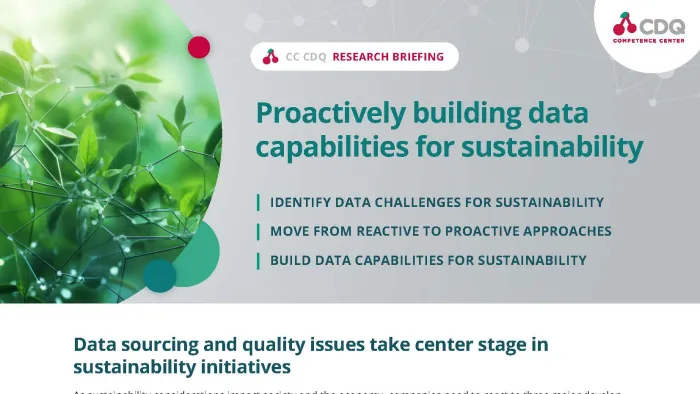Why sustainability practices are relevant for companies
Climate change, water and air pollution, resource depletion are among the urging environmental issues which our planet is facing. Nowadays companies are under mounting pressure to solve these issues while also confronted with stricter regulations and shifting consumer preferences. In EU for example, the suggested in April 2021 Corporate Sustainability Reporting Directive (CSRD) aims at extending the scope of the reporting obligations for all companies going beyond the currently adopted 2014 Non-Financial Reporting Directive (NFRD). From the consumer side, there is growing interest in more sustainable and “green” products. This tendency is also reflected in a continuous growth in ecolabels, which are currently at 455 recognized in almost 200 countries and 25 industry sectors.
What data management for sustainability is
Data management for sustainability englobes efficient collection, storing and processing of the necessary data to achieve the set sustainability goals for specific scenarios.
What data managers can contribute
Current approaches to sustainability data management are largely ad-hoc within the enterprises, alarming for a shift from reactive to proactive methods. In addition, companies need to collaborate to manage their sustainability data efficiently (e.g., having common standards and definitions), since it becomes more difficult to survive as a sole fighter. Therefore, CC CDQ launches co-innovation group to elaborate on these issues and to join forces in developing a scalable approach to sustainability data management. In this close collaboration between researchers and practitioners, the group will address various sustainability scenarios (e.g., carbon footprint along the supply chain, supplier qualification, and product labeling), the underlying data requirements, as well as the data management capabilities for sustainability.
Do you have any questions on data management for sustainability?
Our data management experts are happy to help you and answer your questions.
